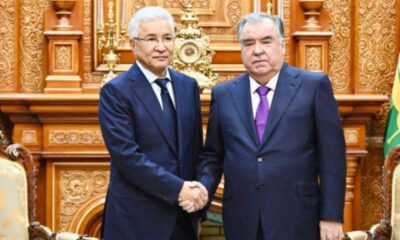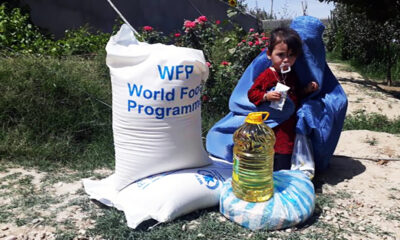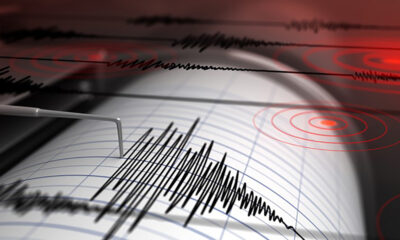Regional
Israel, Hamas ceasefire accord followed by airstrikes on Gaza, residents say
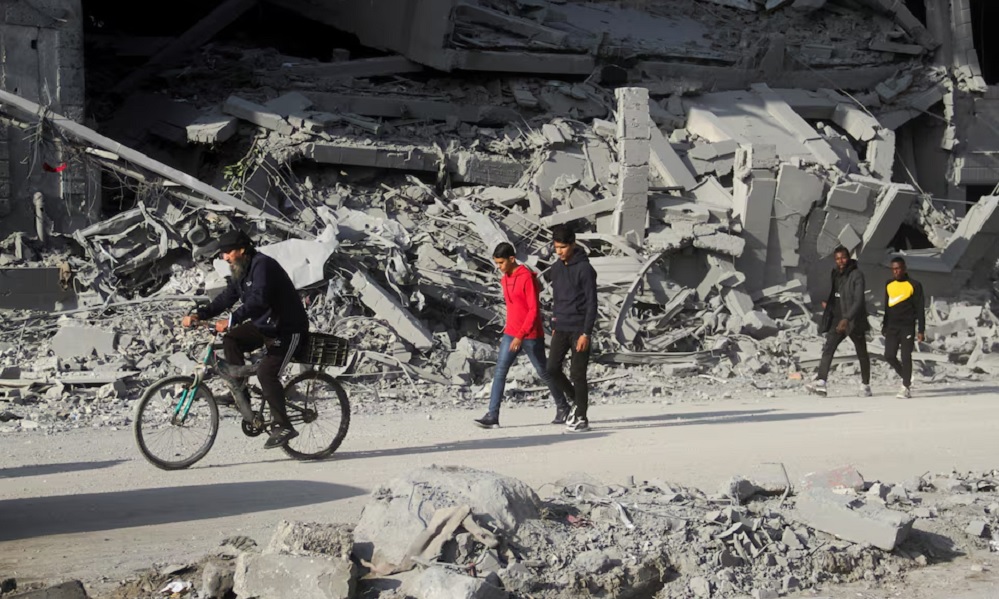
Israel intensified strikes on Gaza hours after a ceasefire and hostage release deal was announced, residents and authorities in the Palestinian enclave said, and mediators sought to quell fighting ahead of the truce’s start on Sunday.
The complex ceasefire accord between Israel and militant group Hamas, which controls Gaza, emerged on Wednesday after months of mediation by Qatar, Egypt and the U.S. and 15 months of bloodshed that devastated the coastal territory and inflamed the Middle East, Reuters reported.
The deal outlines a six-week initial ceasefire with the gradual withdrawal of Israeli forces from the Gaza Strip, where tens of thousands have been killed. Hostages taken by Hamas would be freed in exchange for Palestinian prisoners held by Israel.
At a news conference in Doha, Qatari Prime Minister Sheikh Mohammed bin Abdulrahman Al Thani said the ceasefire would take effect on Sunday. Negotiators are working with Israel and Hamas on steps to implement the agreement, he said.
“This deal will halt the fighting in Gaza, surge much-needed humanitarian assistance to Palestinian civilians, and reunite the hostages with their families after more than 15 months in captivity,” U.S. President Joe Biden said in Washington.
His successor, Donald Trump, takes office on Monday and claimed credit for the breakthrough in Gaza.
Israel’s acceptance of the deal will not be official until it is approved by the country’s security cabinet and government, with votes slated for Thursday, an Israeli official said.
The accord was expected to win approval despite opposition from some hardliners in Israeli Prime Minister Benjamin Netanyahu’s coalition government.
While people celebrated the pact in Gaza and Israel, Israel’s military escalated attacks after the announcement, the civil emergency service and residents said.
Heavy Israeli bombardment, especially in Gaza City, killed 32 people late on Wednesday, medics said. The strikes continued early on Thursday and destroyed houses in Rafah in southern Gaza, Nuseirat in central Gaza and in northern Gaza, residents said.
Israel’s military made no immediate comment and there were no reports of Hamas attacks on Israel after the ceasefire announcement.
A Palestinian official close to the ceasefire negotiations said mediators were seeking to persuade both sides to suspend hostilities ahead of the ceasefire going into effect.
JUBILATION IN GAZA
In social media posts, some Gaza residents urged Palestinians to exercise extra caution in the belief Israel could step up attacks in the next few days to maximize gains before the ceasefire starts.
Nevertheless, news of the ceasefire deal sparked jubilation in Gaza, where Palestinians have faced severe shortages of food, water, shelter and fuel. In Khan Younis, throngs clogged the streets amid the sounds of horns as they cheered, waved Palestinian flags and danced.
“I am happy. Yes, I am crying, but those are tears of joy,” said Ghada, a displaced mother of five.
In Tel Aviv, families of Israeli hostages and their friends likewise welcomed the news, saying in a statement they felt “overwhelming joy and relief (about) the agreement to bring our loved ones home.”
In a social media statement announcing the ceasefire, Hamas called the pact “an achievement for our people” and “a turning point.”
If successful, the ceasefire will halt fighting that has razed much of heavily urbanised Gaza, killed over 46,000 people and displaced most of the tiny enclave’s pre-war population of 2.3 million, according to Gaza authorities.
That in turn could defuse tensions across the wider Middle East, where the war has stoked conflict in the Israeli-occupied West Bank, Lebanon, Syria, Yemen and Iraq, and raised fears of all-out war between arch regional foes Israel and Iran.
With 98 Israeli hostages remaining in Gaza, phase one of the deal entails the release of 33 of them, including all women, children and men over 50. Two American hostages, Keith Siegel and Sagui Dekel-Chen, were among those to be released in the first phase, a source said.
FOOD LINED UP AT THE GAZA’S BORDERS
The agreement calls for a surge in humanitarian assistance to Gaza, and the U.N. and the International Committee of the Red Cross said they were preparing to scale up their aid operations.
“A ceasefire is the start – not the end. We have food lined up at the borders to Gaza – and need to be able to bring it in at scale,” said Cindy McCain, World Food Program executive director, on X.
Global reaction to the ceasefire was enthusiastic. Leaders and officials of Egypt, Turkey, Britain, the United Nations, the European Union, Jordan, Germany and the United Arab Emirates, among others, celebrated the news.
Biden and Trump both claimed credit for the deal that was months in the making but was helped across the line by a Trump emissary.
Trump’s Mideast envoy Steve Witkoff was in Qatar along with White House envoys for the talks, and a senior Biden administration official said Witkoff’s presence was critical to reaching a deal after 96 hours of intense negotiations.
Biden said that the two teams had “been speaking as one”.
Israeli hostage families expressed concern that the accord may not be fully implemented and some hostages may be left behind in Gaza.
Negotiations on implementing the second phase of the deal will begin by the 16th day of phase one, and this stage was expected to include the release of all remaining hostages, a permanent ceasefire and the complete withdrawal of Israeli forces from Gaza.
The third stage is to address the return of all remaining dead bodies and the start of Gaza’s reconstruction supervised by Egypt, Qatar and the United Nations.
If all goes smoothly, the Palestinians, Arab states and Israel must still agree on a vision for post-war Gaza, including the unanswered question of who will run Gaza after the war.
Israeli troops invaded Gaza after Hamas-led gunmen burst into Israeli border-area communities on Oct. 7, 2023, killing 1,200 soldiers and civilians and abducting over 250 hostages, according to Israeli tallies.
Regional
Tajikistan President and CSTO Chief discuss bolstering security along Tajik-Afghan border
The two sides reviewed the progress of the first stage of a joint program among CSTO member states to strengthen border protection in this area.
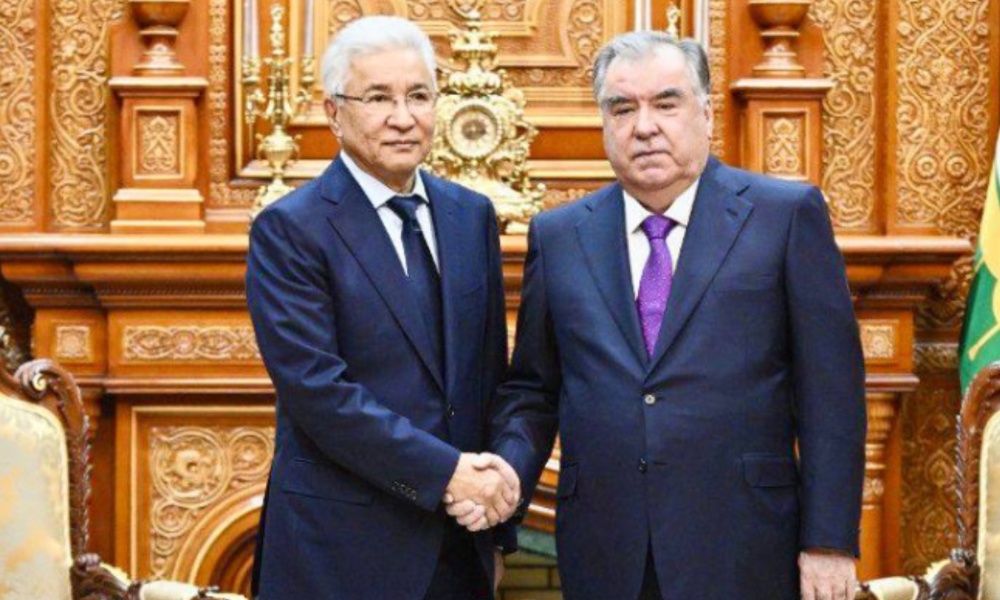
Regional
Iran, US hold ‘positive’ talks in Oman, agree to resume next week
Araqchi said his delegation had a brief encounter with its U.S. counterpart headed by Witkoff, after they exited the talks.
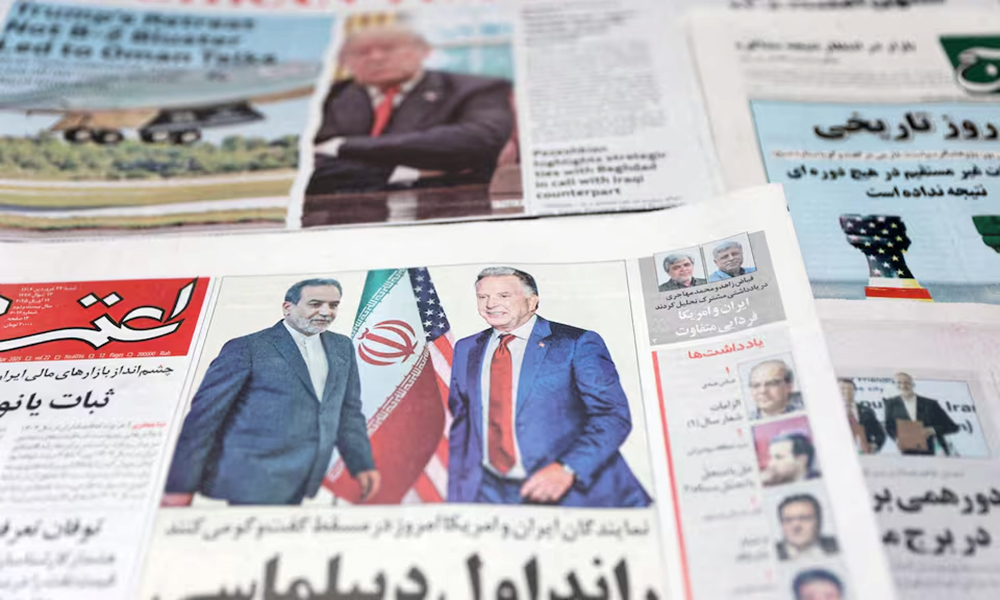
Iran and the U.S. said they held “positive” and “constructive” talks in Oman on Saturday and agreed to reconvene next week in a dialogue meant to address Tehran’s escalating nuclear programme, with President Donald Trump threatening military action if there is no deal, Reuters reported.
“I think we are very close to a basis for negotiations and if we can conclude this basis next week, we’ll have gone a long way and will be able to start real discussions based on that,” Iranian Foreign Minister Abbas Araqchi told state television.
Araqchi said the talks – the first between Iran and a Trump administration, including his 2017-2021 first term – took place in a “productive, calm and positive atmosphere”.
“Both sides have agreed to continue the talks … probably next Saturday,” Araqchi added. “Iran and the U.S. side want an agreement in the short term. We do not want talks for (the sake of) talks.”
The White House called the talks involving Trump’s Middle East envoy Steven Witkoff, U.S. Ambassador to Oman Ana Escrogima and Araqchi “very positive and constructive.”
“These issues are very complicated, and Special Envoy Witkoff’s direct communication today was a step forward in achieving a mutually beneficial outcome,” it said in a statement. “The sides agreed to meet again next Saturday.”
Asked about the talks, Trump told reporters on Saturday night: “I think they’re going OK.”
“Nothing matters until you get it done, so I don’t like talking about it, but it’s going OK. The Iran situation is going pretty good, I think,” he said on Air Force One.
Trump made a surprise announcement on Monday that Washington and Tehran would begin talks in Oman, a Gulf state that has mediated between the West and the Islamic Republic before. It has brokered the release of several foreign citizens and dual nationals held by Iran, read the report.
Saturday’s exchanges were indirect and mediated by Oman, as Iran had wanted, rather than face-to-face, as Trump had demanded. Each delegation had its separate room and exchanged messages via Oman’s foreign minister, according to Iranian Foreign Ministry spokesman Esmail Baghaei.
Araqchi said his delegation had a brief encounter with its U.S. counterpart headed by Witkoff, after they exited the talks.
“After the end of more than 2-1/2 hours of indirect talks, the heads of the Iranian and American delegations spoke for a few minutes in the presence of the Omani foreign minister as they left the talks. It (the encounter) was based on our political etiquette,” Araqchi said.
“The current focus of the talks will be de-escalating regional tensions, prisoner exchanges and limited agreements to ease sanctions (against Iran) in exchange for controlling Iran’s nuclear programme,” an Omani source told Reuters.
Baghaei denied this account but did not specify what was false.
Trump, who in his first term withdrew the U.S. from a 2015 big-power accord with Tehran, has again brought a tougher approach to a Middle Eastern power whose nuclear programme Washington’s ally Israel regards as an existential threat.
At the same time, Iran and allied groups have been weakened by the military offensives Israel has launched across the region, including air strikes in Iran, during its war with Hamas after the Palestinian militant group Hamas attacked Israel from Gaza in October 2023, Reuters reported.
Mikhail Ulyanov, Russia’s ambassador to international bodies in Vienna, called the statements issued by both sides after the talks “encouraging”.
Tehran approached the talks warily, sceptical they could yield a deal and suspicious of Trump, who has repeatedly threatened to bomb Iran if it does not halt its accelerating uranium enrichment programme – regarded by the West as a possible pathway to nuclear weapons.
While each side has talked up the chances of some progress, they remain far apart on a dispute that has rumbled on for more than two decades. Iran has long denied seeking nuclear weapons capability, but Western countries and Israel believe it is covertly trying to develop the means to build an atomic bomb.
“This is a beginning. So it is normal at this stage for the two sides to present to each other their fundamental positions through the Omani intermediary,” Baghaei said.
Signs of progress could help cool tensions in a region aflame since 2023 with wars in Gaza and Lebanon, missile fire between Iran and Israel, Houthi attacks on Red Sea shipping and the overthrow of the government in Syria.
However, failure would aggravate fears of a wider conflagration across a region that exports much of the world’s oil. Tehran has cautioned neighbouring countries that have U.S. bases that they would face “severe consequences” if they were involved in any U.S. military attack on the OPEC member.
“There is a chance for initial understanding on further negotiations if the other party (U.S.) enters the talks with an equal stance,” Araqchi told Iranian TV.
Iran’s Supreme Leader Ayatollah Ali Khamenei, who has the final say on key state matters, has given Araqchi “full authority” for the talks, an Iranian official told Reuters.
Iran has ruled out negotiating its defence capabilities such as its ballistic missile programme.
Western nations say Iran’s enrichment of uranium, a nuclear fuel source, has gone far beyond the requirements of a civilian energy programme and has produced stocks at a level of fissile purity close to those required in warheads.
Trump, who has restored a “maximum pressure” campaign on Tehran since February, ditched a 2015 nuclear pact between Iran and six world powers, including Russia and China, in 2018 during his first term and reimposed crippling sanctions on the Islamic Republic.
Since then, Iran’s nuclear programme has leaped forward, including by enriching uranium to 60% fissile purity, a technical step from the levels needed for a bomb.
Regional
South Korea establishes diplomatic ties with Syria
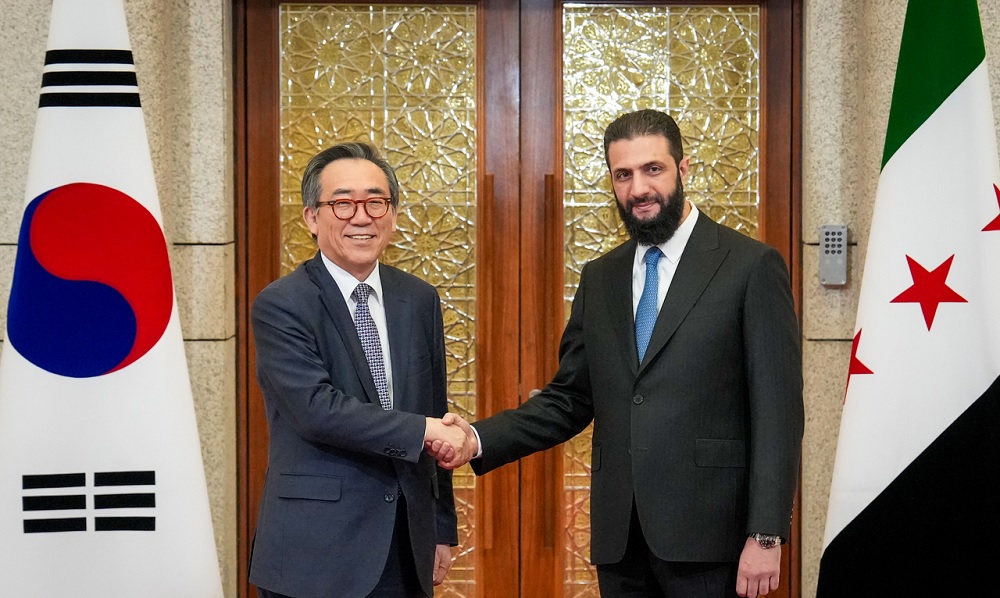
South Korea and Syria have signed an agreement in Damascus establishing diplomatic relations, the South Korean foreign ministry said on Friday, opening new ties with a traditional ally of its rival North Korea.
The event marks a milestone for South Korea now having established diplomatic ties with all 191 U.N. member states and opening “a new chapter for bilateral cooperation with Syria, which had long remained distant due to its close ties with North Korea,” the South Korean foreign ministry said, Reuters reported.
South Korea established diplomatic relations with Cuba last year, another old ally of the North.
North Korea’s state media ceased mentions of Syria since the overthrow of former President Bashar al-Assad in December except leader Kim Jong Un once referring to “the Middle East crisis” in passing.
A joint communique was signed by South Korean Foreign Minister Cho Tae-yul and Syria’s Asaad al-Shibani on Thursday, and Cho expressed willingness to share South Korea’s development experience to support Syria’s reconstruction, the ministry said.
Cho later met Syrian President Ahmed al-Sharaa, it said.
-

 Sport4 days ago
Sport4 days agoAfghanistan win U-19 cricket series despite rain-impacted loss to Nepal
-
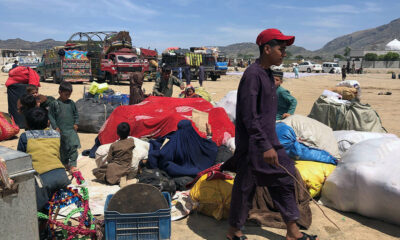
 Latest News5 days ago
Latest News5 days agoPakistan expels thousands of Afghan nationals in fresh drive, says UNHCR
-
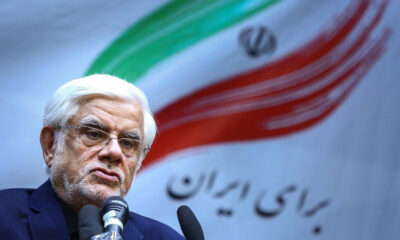
 Latest News5 days ago
Latest News5 days agoIran’s Vice President advocates stronger ties with neighbors, especially Afghanistan
-
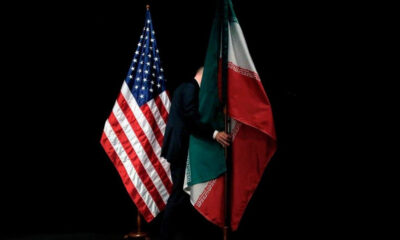
 Regional5 days ago
Regional5 days agoUS energy secretary sees tighter sanctions on Iran without deal
-
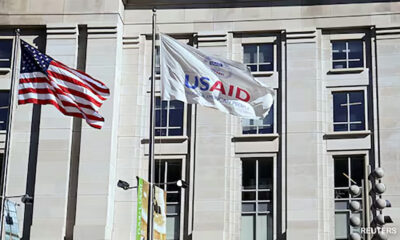
 Latest News5 days ago
Latest News5 days agoTrump administration moves to restore some terminated foreign aid programs, sources say
-
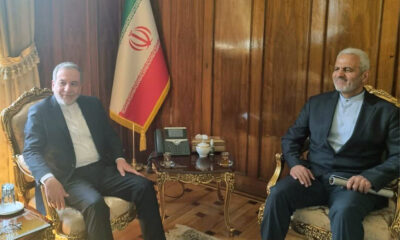
 Latest News5 days ago
Latest News5 days agoBigdeli updates Iran’s FM on current status of bilateral relations with Kabul
-
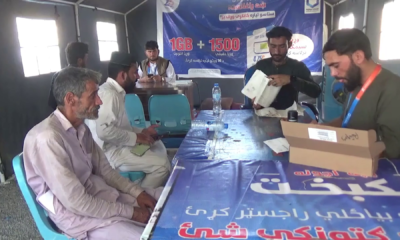
 Latest News4 days ago
Latest News4 days agoAWCC distributes free SIM cards to returning refugees from Pakistan
-

 International Sports5 days ago
International Sports5 days agoIPL 2025: Arya slays CSK for Punjab Kings








